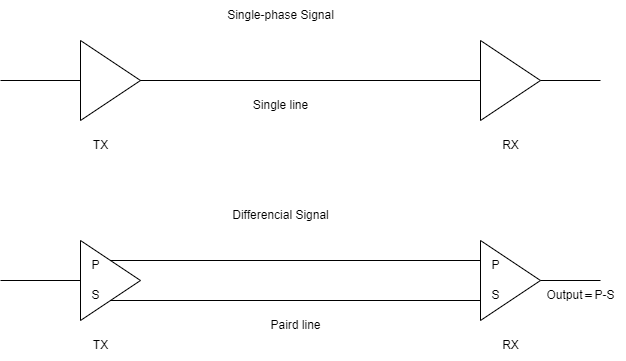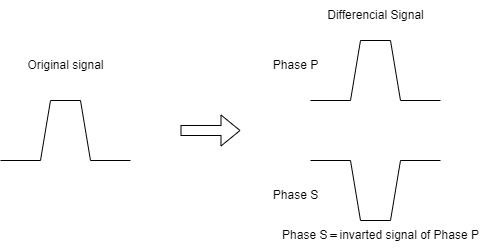Electrical signal basically sends its voltage as its signal element.
There are 2 kinds of electrical signals; the single-phase signal and the differential signal.
Differential signal is said to have stronger resistance against noise.
What makes differential signal stronger against noise?
To send a signal as a differential signal, a signal is divided into phase-P and phase-S. Phase-S is an inverted signal of phase-P at that time.

When the signal is received, the receiver will turn the 2 signals back into one single-phase signal. The calculation to put them back into one phase is (P) – (S) .

Next, let’s consider the situation where there is a noise source close to the transmission line of the signal so the transmission signal catches the noise.

Both phase-P and phase-S catch the same phase, same style (same waveform、same phase) noise on the signal.
But when the signals are received and put back together to be single-phased, the calculation (P) – (S), the same style-same phase signal (In this case, the noise) will be deleted.
This is the reason why it is said to have stronger resistance against noise.
By the way, to delete the noise with the calculation (P) – (S), the noise on each phase should be as close to be the same style, same phase as possible
So it is better to have both lines for phase-P and phase-S to go through the same line. (In many cases, twisted pair cable is the best.)
